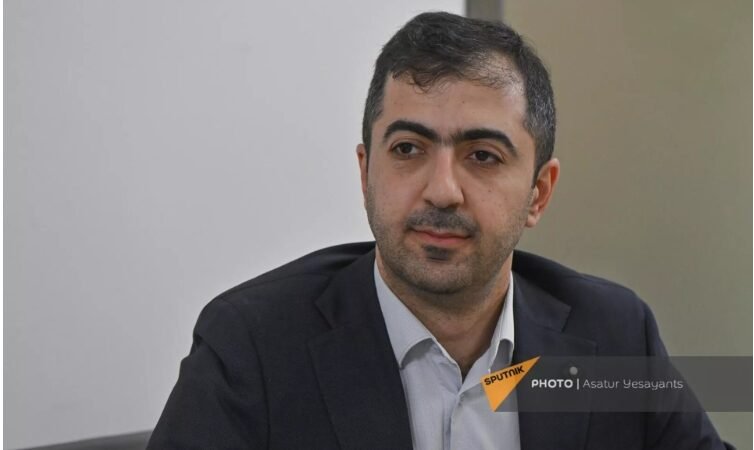YEREVAN, July 16 – Sputnik Armenia
The plight of Armenian detainees held in Azerbaijan must be addressed as part of the broader violations of international law and recognized as a major obstacle to normalizing relations between Armenia and Azerbaijan, legal expert Aram Orbelyan said in an interview with Sputnik Armenia.
Orbelyan, a lawyer and international law specialist, stressed that Armenia cannot achieve meaningful progress through concessions alone. Instead, the detainee issue should be raised consistently on multiple international platforms.
“Azerbaijan is using its domestic courts and criminal justice system to assert that Artsakh (Nagorno-Karabakh) is part of its territory. If such rulings are accepted, any political or legal entity that has existed in Artsakh could be criminalized. This includes holding office or supporting the right to self-determination,” Orbelyan explained.
He emphasized that while these claims may align with Azerbaijani law, they conflict with international legal principles recognizing Artsakh’s right to exist as an independent entity.
Orbelyan also highlighted serious violations of individual criminal responsibility by Azerbaijan, citing acts ranging from aggressive warfare to crimes against humanity and genocide. He called for the use of comprehensive international legal mechanisms—including the Convention on the Elimination of Racial Discrimination and ongoing cases at the European Court of Human Rights—to address these issues.
“Results cannot be limited to the release of prisoners of war. A full legal approach is essential,” he said.
The expert warned of a deeper humanitarian crisis, noting discrepancies between official detainee numbers and independent reports, and calling for thorough investigations into the whereabouts and conditions of detainees and missing persons.
Orbelyan criticized the current diplomatic imbalance, where discussions on reopening regional transport routes outlined in the November 9 trilateral agreement proceed actively, while the detainee issue remains largely ignored.
“This imbalance also exists in peace treaty negotiations and border delimitation talks,” he noted, urging Armenia to engage bilaterally with Russia, France, Germany, and the European Union, as well as multilaterally through the UN, OSCE, Council of Europe, and Black Sea Economic Cooperation Organization.
Responding to claims that Armenian authorities have agreed to withdraw interstate legal complaints against Azerbaijan at Baku’s insistence, Orbelyan cautioned against viewing this as a step toward resolving detainee issues.
“This is a multi-layered process. Combining legal and political tools indicates that the detention of these individuals by Azerbaijan may be illegal,” he said.
He further pointed out that Azerbaijan’s racist policies have been addressed in international courts, referencing rulings that confirm violations of the Convention on the Elimination of Racial Discrimination, thereby challenging the fairness of Azerbaijani trials of Armenian detainees.
Orbelyan recalled that interim court rulings still obligate Azerbaijan to guarantee the freedom of movement for Artsakh residents, which he described as a structural issue.
“If normal relations with Azerbaijan are the goal, they must be based on equality and international legal norms, not unilateral concessions.”
The expert concluded by warning that Armenia currently faces pressure to make concessions without reciprocal respect for its interests and the rule of law.
Background
Since January 17, 2025, Azerbaijani courts have been conducting trials of former Artsakh political and military leaders, including former Presidents Arkadi Ghukasyan, Bako Sahakyan, and Arayik Harutyunyan; former Defense Army Commander Levon Mnatsakanyan; former Foreign Minister Davit Babayan, among others. The case of former State Minister and philanthropist Ruben Vardanyan is being tried separately.

